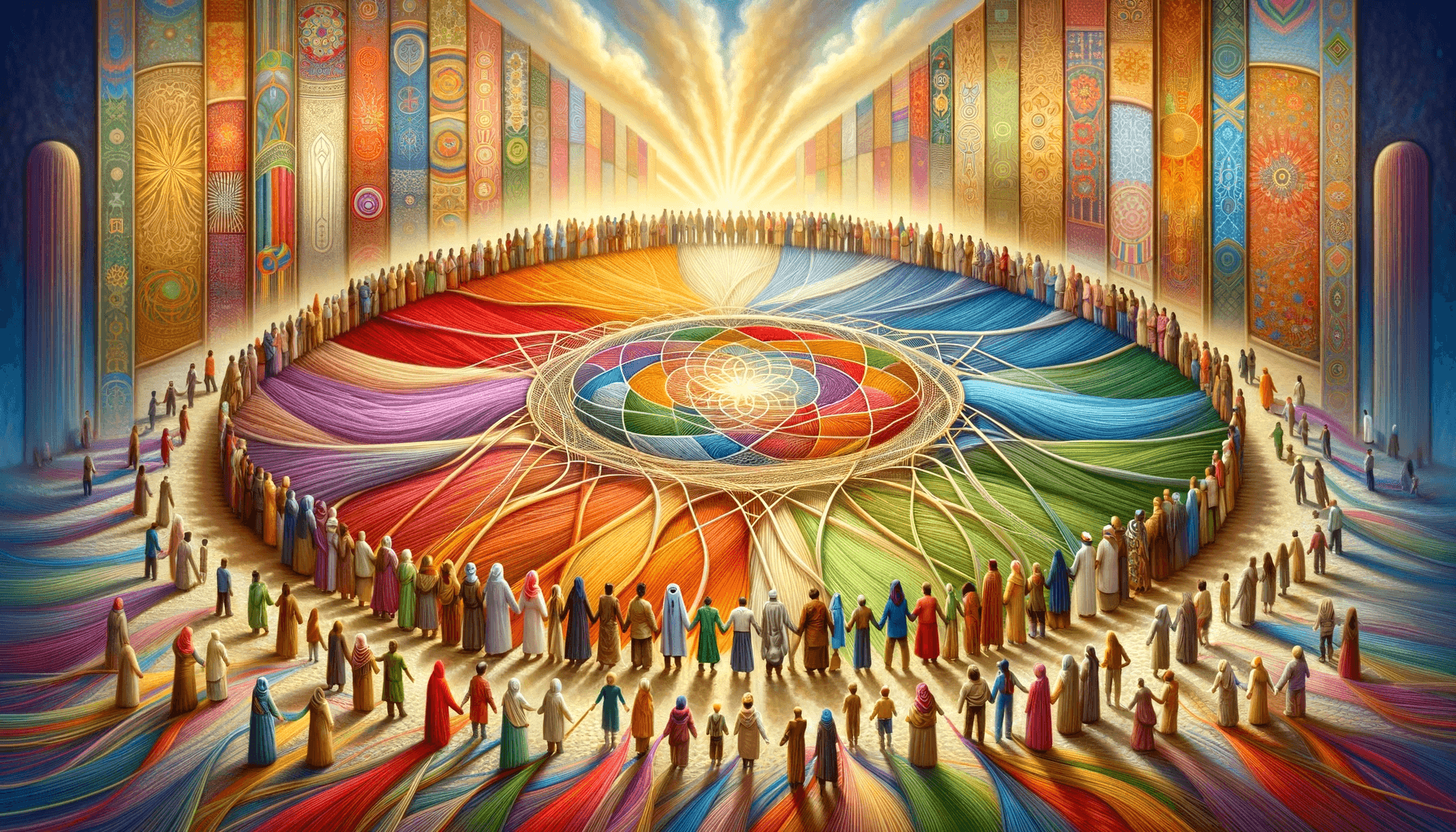Sponsor Manifestation Miracle
Table of Contents
What is Religious Pluralism?
Religious pluralism is the belief that multiple religious traditions can coexist harmoniously in society. It recognizes and respects the diversity of religious beliefs and practices, emphasizing the importance of tolerance and acceptance. In a world where conflicts rooted in religious differences have been prevalent, religious pluralism offers a pathway to peace and understanding.
Religious pluralism does not imply that all religions are the same or hold equal truth. Instead, it acknowledges each religion’s unique qualities and perspectives while promoting mutual respect and dialogue. It encourages individuals to embrace their faith while recognizing the validity and worth of others.
Importance of Religious Pluralism in Society
Religious pluralism plays a vital role in creating a cohesive and inclusive society. It promotes social harmony and understanding by fostering an environment where diverse religious beliefs are respected and celebrated. When people from different religious backgrounds come together, they can learn from one another, challenge stereotypes, and break down barriers.
In a pluralistic society, individuals can express their religious beliefs without fear of discrimination or persecution. This freedom of religion is a fundamental human right that allows people to live according to their values and convictions. It empowers individuals to form their own opinions, make informed choices, and contribute to the betterment of society.
Historical Context of Religious Pluralism
The idea of religious pluralism has deep historical roots. Throughout history, societies have been shaped by the interaction and exchange of religious ideas. Ancient civilizations such as Mesopotamia, Egypt, and Greece were known for their religious diversity and acceptance of different belief systems.
More recently, religious pluralism gained traction in response to the religious conflicts that plagued Europe during the Reformation. The Treaty of Westphalia in 1648 marked a significant turning point, recognizing the principle of religious tolerance and the coexistence of different faiths.
Promoting Tolerance and Acceptance through Religious Pluralism
Religious pluralism promotes tolerance and acceptance by encouraging individuals to engage in meaningful dialogue, seek common ground, and work toward the common good. It provides a framework for understanding and appreciating different religions’ cultural, social, and spiritual dimensions.
By fostering an environment of mutual respect, religious pluralism helps to break down stereotypes and prejudices. It challenges individuals to confront their biases and preconceived notions, leading to greater understanding and empathy. Through dialogue and interaction, people can recognize the shared values and aspirations that unite humanity.
Benefits of Embracing Religious Diversity
Embracing religious diversity brings numerous benefits to society. It enriches the cultural fabric by exposing individuals to different traditions, rituals, and perspectives. This exposure broadens horizons and encourages creative thinking, promoting innovation and progress.
Moreover, religious diversity fosters a sense of unity and collective identity. When people from different religious backgrounds come together, they form connections based on shared values and a common humanity. This sense of unity can strengthen social cohesion and contribute to the overall well-being of a community.
Challenges Faced in Fostering Religious Pluralism
While religious pluralism offers great potential for societal harmony, it also faces challenges. One of the main obstacles is the deeply ingrained prejudices and misconceptions that exist within societies. Overcoming these biases requires education and awareness and promoting interfaith dialogue and cooperation.
Another challenge is navigating the tension between religious freedom and the preservation of social order. Balancing the rights of individuals to practice their faith with the need to maintain peace and stability can be a delicate task. Open and respectful dialogue can help find common ground and bridge differences.
Religious Pluralism in Education and Interfaith Dialogue
Education plays a crucial role in fostering religious pluralism. By incorporating religious studies into school curricula, students can gain a deeper understanding of different faiths and develop respect for diversity. Promoting interfaith dialogue and collaboration within educational institutions can also help build bridges and foster a culture of acceptance.
Interfaith dialogue provides a platform for individuals from different religious backgrounds to come together and engage in meaningful conversations. It allows for the exchange of ideas, the clarification of misconceptions, and the building of relationships based on mutual respect. Stereotypes can be challenged through dialogue, and common ground can be found.
Religious Pluralism and Social Justice
Religious pluralism and social justice are deeply intertwined. Many religious traditions advocate for principles of justice, compassion, and equality. By embracing religious diversity, societies can tap into the rich moral resources of different faiths, inspiring individuals to work towards a more just and equitable world.
Religious pluralism encourages individuals to confront social injustices and take action to address them. It fosters a sense of responsibility towards the well-being of others, promoting solidarity and compassion. People can tackle poverty, discrimination, and environmental degradation by working together across religious boundaries.
Religious Pluralism in the Workplace
The workplace is another important arena for religious pluralism. Employers are responsible for creating an environment that respects religious diversity and accommodates the religious needs of their employees. This can include providing prayer rooms, flexible schedules for religious observances, and policies that prevent discrimination based on religious beliefs.
Embracing religious diversity in the workplace can increase employee satisfaction, productivity, and creativity. When individuals feel valued and respected for their religious beliefs, they are more likely to contribute their talents and skills wholeheartedly. This inclusive approach can also enhance teamwork and foster a sense of belonging among employees.
Conclusion: Embracing Religious Pluralism for a Harmonious Society
Religious pluralism is a powerful force for fostering tolerance and acceptance in today’s society. By recognizing and respecting the diversity of religious beliefs, we can build bridges of understanding and create a more harmonious world. Embracing religious diversity brings numerous benefits, from enriching the cultural fabric to promoting social justice.
While challenges exist, we can overcome them through education, dialogue, and cooperation. By actively promoting religious pluralism in every aspect of society, from education to the workplace, we can create an inclusive and cohesive environment where all individuals can thrive. Let us embrace religious pluralism as a pathway to peace, understanding, and a better future.






